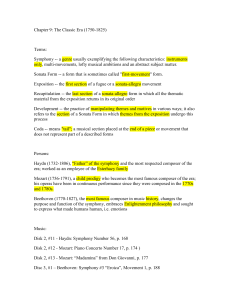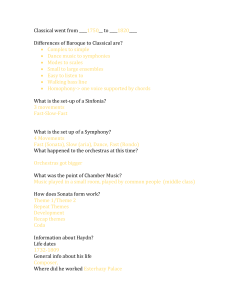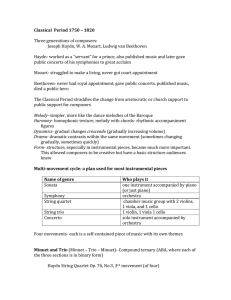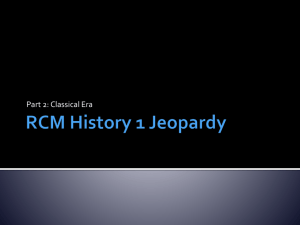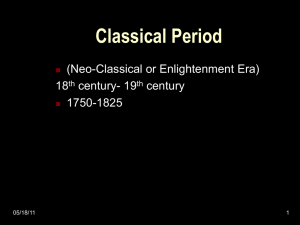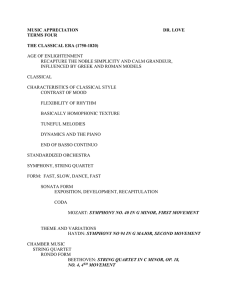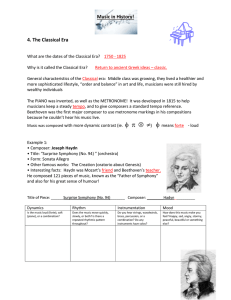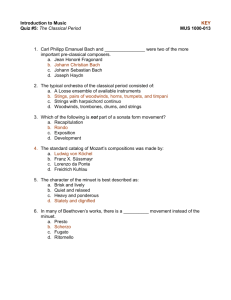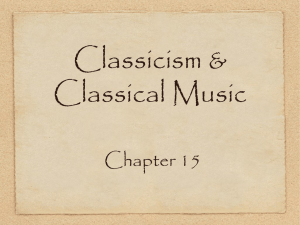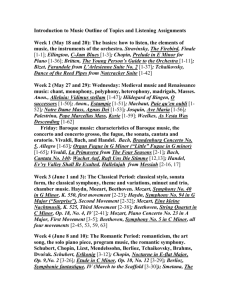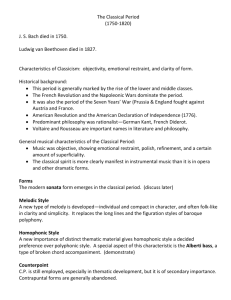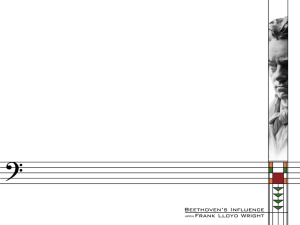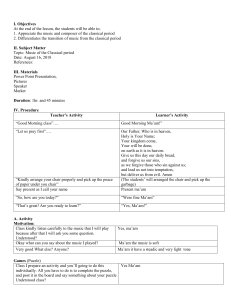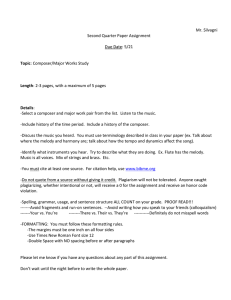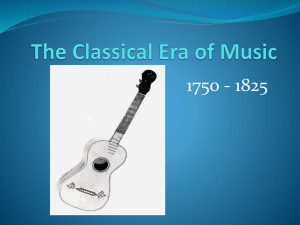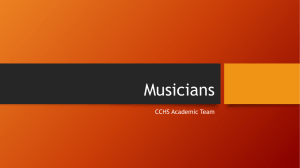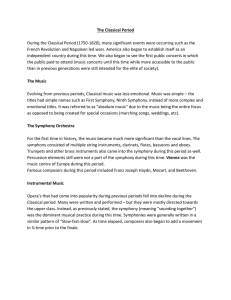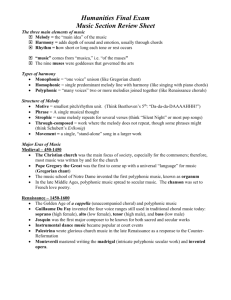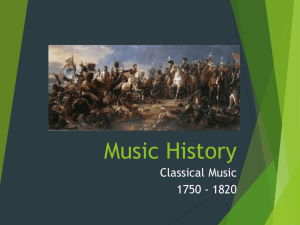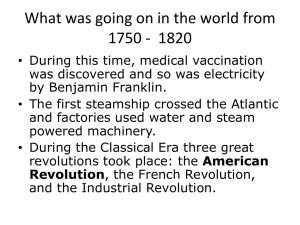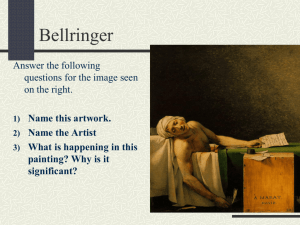Classical Music
advertisement
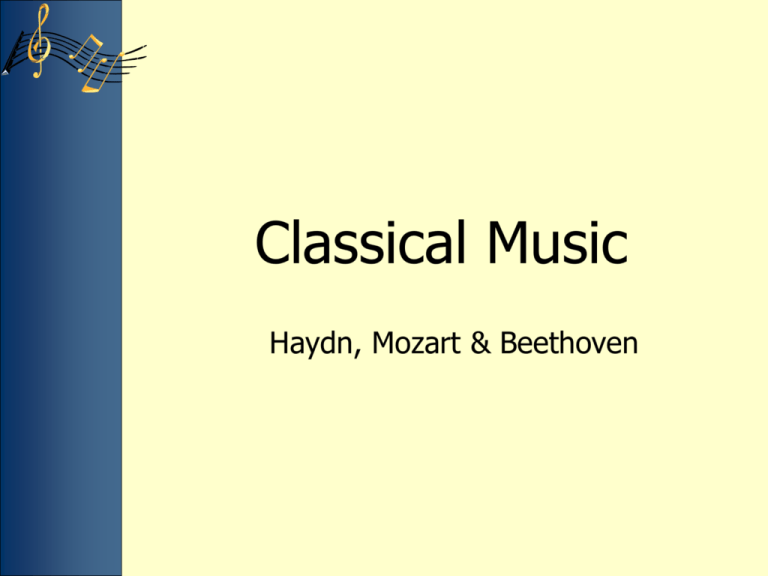
Classical Music Haydn, Mozart & Beethoven What is Classical Music? • All music older than Mr. Waterman? • Does it have something to do with Greco-Roman culture? • No to both. • Classical technically refers to music from about 1730 to 1815. Piano • Invented in 1700 • Replaces harpsichord and clavichord as favorite keyboard instrument • Becomes the instrument of choice for virtuosos Terminology • Score – a record of musical notation that indicates every sound to be played by each instrument. • Orchestra – instrumental grouping of strings, woodwinds, brass, and percussion. • Symphony – an independent instrumental composition for full orchestra. Haydn • “Father of the Symphony” • Spent 30 years as musical director for Esterhazy family. – Two opera theaters – Two concert halls • Good friends with Mozart • Early teacher of Beethoven Symphony No. 94 in G Major, “Surprise” What to listen for: • Folk-like theme in 2 phrases • Loud, crashing chord (the “surprise”) at the end of the first theme • Listen for the period string, wind, and percussion instruments Mozart • Hands down the greatest musician/composer EVER. • Age 3 – Perfect Pitch • Age 5 – Master harpsichord player • Age 6 – First composition • Age 7 – Read, transpose, and harmonize any melody • Age 8 – First symphony Mozart • By 18 he had written 34 symphonies, 16 quartets, 5 operas, and over 100 other works • No single patron – worked freelance • Died at 35 with over 600 compositions to his name Serenade No. 3 in G Major, K. 525 “Eine kleine Nachtmusik” What to listen for: • Will sound lighter than Haydn’s work • String, chamber music style • Quick paced movement with 3 themes • Homophonic texture Requiem In D Minor, K 626 Rex Tremendae • Requiem – Funeral Mass • Commissioned while Mozart was trying to finish two other pieces • He died while writing it, but his student had enough information to finish it Beethoven • • • • • Born in Germany Moved to Vienna at 17 Trained with Haydn Numerous patrons Constantly fell in love with upper class ladies • Never married • Started to go deaf in 1802 • Died in 1827 Piano Sonata No. 14 “Moonlight” What to listen for: • Delicate character of melody • Singing quality of the piano • Continuous melody Symphony No. 5 in C minor • One of the most popular and well-known compositions ever. • Written while in Vienna, which was occupied by Napoleon’s troops. Symphony No. 9 in D Minor, “Ode to joy” • Adopted as the Theme for Europe • Transition piece from Classical to Romantic • Beethoven was deaf when he wrote it • While deaf, he conducted it at the premiere Egmont Overture Free Write As you watch and listen to this piece of music describe what you are hearing in as much detail as possible. You may write about the timbre (instruments), tempo, texture, emotion, or any other aspect of the music.
